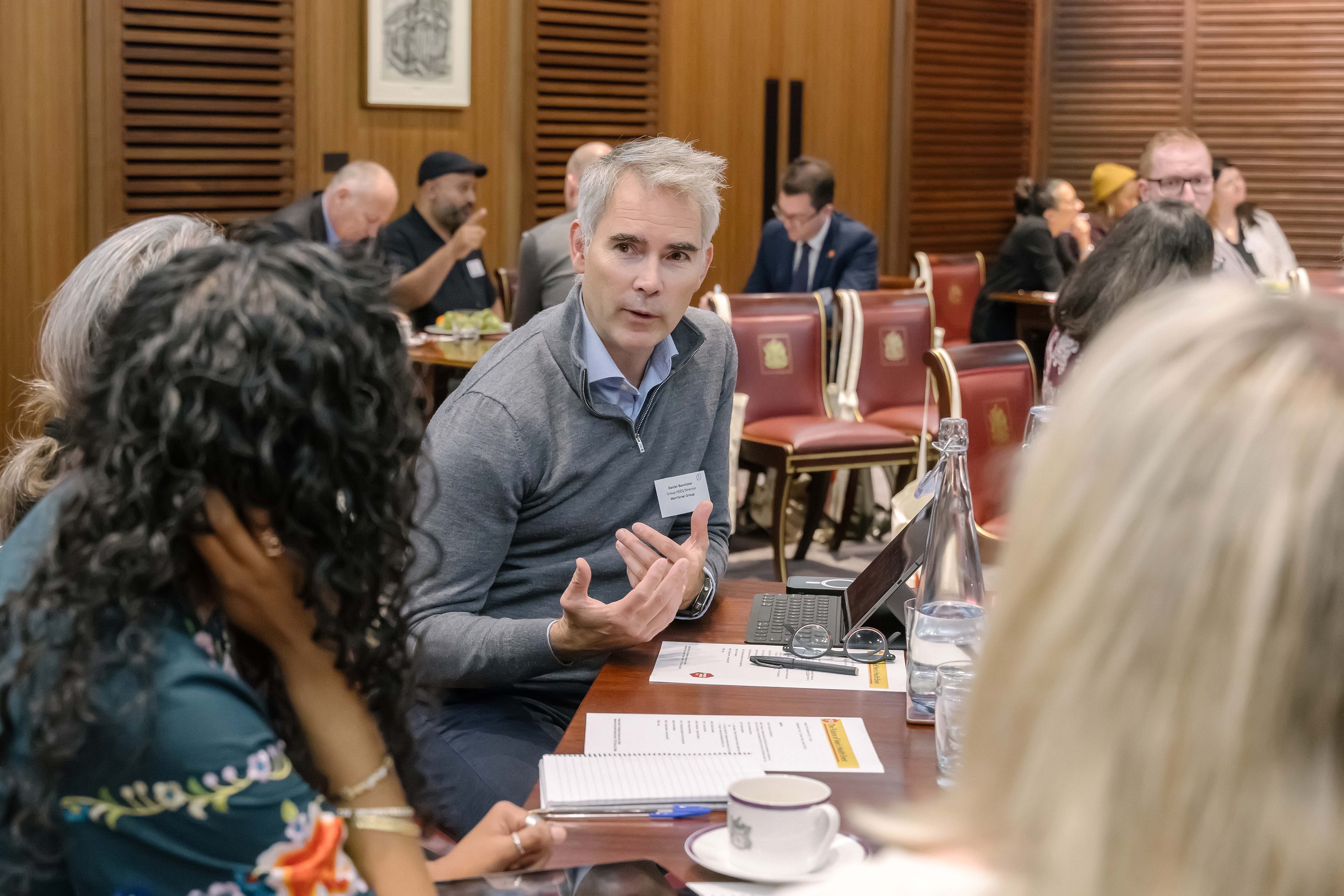
“How do you tackle the root causes and not just be treating the symptoms” - these are the words of a leader of big business about men’s health. That company was far from alone: through our Future of Men’s Health work, we brought together business leaders, community organisations, health experts and government officials to discuss men’s health. The resulting conversation shone a light on some of the darker corners of men’s health and the complexity of solutions. It was a room full of genuine compassion and a desire to do more and better.
Talking about men’s health can, rightly, mean that questions abound around male privilege and its associated harms. Our work means addressing inequalities wherever they lie. Talking about men’s health does not diminish the privilege men are afforded, but we are not creating a zero-sum game here. It’s not a game in any way. Health inequalities are nasty, lifelong and massively damaging wherever they sit, and each part of society requires a dedicated approach and due respect.
Why Men’s Health?
The evidence is stark and alarming on men’s health. Across the country, men are living shorter lives and fewer healthy years than they used to:
- Men are dying nearly four years younger than women;
- In the most deprived areas, men may live nearly 11 years less than men in the least deprived;
- The difference in healthy life expectancy — years lived without serious illness — is as much as 20 years between men living in the least and most advantaged areas;
- Men’s suicide is the biggest killer of men under 50 and it hit its highest rate ever of 17.1 per 100,000 in England, 22 per 100,000 in Wales in 2023. In Scotland male suicide rates were three times higher than the female rate
- In the construction industry alone, on average two men die by suicide every day in the UK.
These are not abstract statistics. These are our fathers, our sons, our brothers, our husbands and partners. They are also our colleagues and employees. We believe that improving men’s health is everybody’s business.
Harnessing the ideas and commitment shared by industry and government, we’ve launched a new Men’s Health Business Forum, and we invite all companies who want to make a difference to the men in their workforce, and among their wider communities, to join.
Working Together
The reasons for these health trends are complex but, in fact, businesses working with the charity sector, can make a real difference to addressing the core issues. Crucial to this is understanding what’s happening on the ground. When we spoke to grassroots organisations working with tens of thousands of men, two clear themes emerged that affect men the most:
- Mental health and loneliness dominate — they are both root causes and signifiers of physical ill health;
- Health services are often inaccessible or mistrusted by men until crisis point — delaying vital diagnosis and early intervention.
We heard from businesses that they recognised the need to address poor health among men, because it’s good for business, makes economic sense and, most of all, is good for male employees and their families.
It’s clear from our conversations with businesses that they recognise that a healthier workforce improves performance overall. They were also acutely aware of their unique reach and ability to support men. For many though, the issue was one of how. Many businesses do invest in initiatives to support men’s health but have low-take up/efficacy rates.
One of the issues we know to be the case is that these initiatives are rarely designed by the men who most need them. People’s Health Trust has many years of user-centred design under its belt and that is why we are bringing that expertise to these issues and working with businesses to find solutions which are impactful.
Join us
We know that sustainable change in men’s health requires collaboration across sectors. And we know that some businesses are leading the way when it comes to promoting men’s health. Through our Men’s Health Business Forum we can work together to share expertise and provide a space for discussion and programme design that businesses can roll out to support their workforce.
Together we will answer the key questions on men’s health:
- How can we design health approaches that feel safe, relevant, and easy for men to engage with?
- How can we measure the effectiveness of these approaches to make sure that they bring real benefits to men and business?
- How can businesses help shape the implementation of the government’s forthcoming Men’s Health Strategy national and locally?
We are committed to bringing together businesses, communities and government to act on this vital issue together.
John Hume
John Hume, Chief Executive of People's Health Trust


